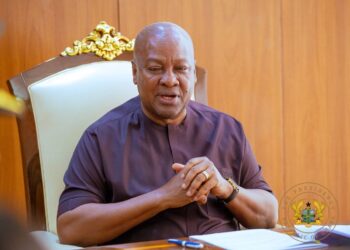The government of Ghana has taken a significant step by establishing the Gold Board (Goldbod), a move that centralizes the trading and export of gold. However, a critical question remains: why stop at regulating and overseeing transactions when the country could take a more active role in gold production? If the government has the capacity to set up a national gold board, why not channel the same energy into establishing state-owned, medium-scale mines across the country? Such a move would not only make economic and developmental sense but would also ensure that Ghana fully benefits from its vast gold resources.
For decades, Ghana’s gold industry has been dominated by large multinational corporations and small-scale artisanal miners. While these players contribute to the economy, the country’s full potential remains untapped due to an overreliance on taxation and regulatory fees. Instead of positioning itself as a passive regulator or revenue collector, the government should take a more proactive stance by directly participating in gold mining. By establishing state-owned mines, Ghana can create thousands of jobs for locals, ensure sustainable mining practices, and significantly increase national revenue.
Nationalizing strategic gold mines or investing in state-controlled mining operations would allow Ghana to retain a larger share of the wealth generated from its natural resources. Currently, a significant portion of gold revenues leaves the country through foreign-owned corporations. With state-run mines, profits could be reinvested into national development projects, such as infrastructure, education, and healthcare. Moreover, state involvement would help curb illegal mining (galamsey), which has led to severe environmental degradation. Through responsible and sustainable mining, Ghana can protect its natural resources while still benefiting economically.
While the establishment of the Gold Board is a commendable step, its role must be clearly understood. The Gold Board is neither a regulator in the traditional sense nor a competitor in the gold mining sector. Rather, it holds a monopoly over gold trading and export, overseeing transactions conducted through its licensed agents. Its regulatory functions apply only to its approved service providers, ensuring compliance with its governing Act and regulations. Importantly, it does not regulate or oversee independent mining companies, eliminating concerns over conflicts of interest.
A common argument against nationalizing gold mines is the claim that state-owned enterprises are poorly managed and prone to losses. Critics often point to struggling public institutions, such as the Electricity Company of Ghana (ECG), to justify opposition to state-run mining. However, this argument is both misleading and selective. If one failing state enterprise is enough to reject government participation in mining, then by the same logic, the failures of private businesses should also disqualify private sector involvement. There are countless private enterprises that operate at a loss, yet no one suggests that privatization as a whole is a flawed concept.
Additionally, there are successful state-owned enterprises that prove the government is capable of running profitable ventures when the right governance structures are in place. For example, Goil Energy, a state enterprise, has thrived in a competitive market, demonstrating that public ownership does not automatically lead to inefficiency. Instead of dismissing state ownership outright, Ghana should analyze and replicate the governance models of successful state enterprises to ensure effective management of state-owned mines.
Furthermore, if the argument against government involvement is based on the assumption that the state is inherently incapable of managing resources, then why not extend that logic to the highest offices of governance? If public institutions cannot be trusted to manage state assets, should we also consider privatizing the presidency and the legislature? Clearly, the issue is not about whether the government can manage industries but rather how efficiently it does so. With the right policies, oversight, and leadership, state-owned gold mines can be run successfully, just as they are in other resource-rich nations.
Limiting the government’s involvement in the gold sector to regulation and taxation is a missed opportunity. By actively participating in mining operations, Ghana can maximize revenue, reduce dependency on foreign investors, and promote responsible mining. Instead of merely collecting fees and taxes, the government should seize the opportunity to take ownership of its resources. A national mining strategy—combining regulation, ownership, and sustainable practices—would allow Ghana to unlock the full potential of its gold industry and drive long-term economic growth.
The time for passive regulation is over. Ghana must move beyond oversight and take control of its gold wealth for the benefit of its citizens. Investing in state-owned gold mines is not just an economic necessity; it is a national imperative.
Source: Ernest Apetsi
Executive Secretary, Africa Development Council | Development Expert | 0274302020





























